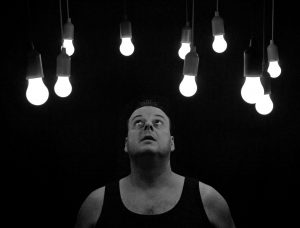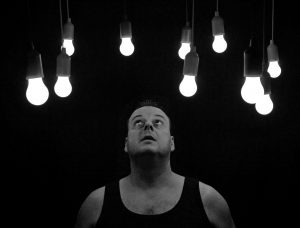
Overcome the Fear of Other People's Opinions
Published on August 27, 2019
 If there’s one thing I hated more than anything else in high school it was this: public speaking. I just dreaded it. It made me extremely anxious, and I was terrified about what my classmates would think of me. Sure, I’d done the research on the topic and had good information to share, but none of that mattered. I was frozen with fear and stammered and shook through nearly every presentation I was ever assigned -- to the point they were probably terrible to watch.
If there’s one thing I hated more than anything else in high school it was this: public speaking. I just dreaded it. It made me extremely anxious, and I was terrified about what my classmates would think of me. Sure, I’d done the research on the topic and had good information to share, but none of that mattered. I was frozen with fear and stammered and shook through nearly every presentation I was ever assigned -- to the point they were probably terrible to watch.
(I’m sure I’m not the only one with this dreadful memory!)
Thankfully, I’ve mostly outgrown my fear of public speaking, but the memory of it serves as a reminder of just how powerful our fear of other people’s opinions can be. It’s a fear that’s irrational and unproductive, yet it affects our own potential to step out and be great.
Worrying about what others will think prevents us from raising our hands to offer our opinions, going for the promotion we know we’re qualified for, speaking confidently in front of a room, and so much more. We think we’re just playing it safe, but really we’re sabotaging our own potential (or, in my case, grades). In the quest to fit in, we create a paralyzing fear of being disliked that undermines our ability to pursue the exact thing we wish to accomplish.
I remember my mom giving me helpful tips for dealing with my anxiety: “Take a deep breath,” “Think positively!” and, my personal favorite, “Picture the audience in their underwear!” That all gave me a temporary reprieve, a Band-Aid of sorts, but it didn’t eliminate the problem. I would have done anything to permanently rip that anxiety out of my life so that I could project my true self and the work I’d accomplished.
Wouldn’t that be nice, to stop caring about what other people think?
As it turns out, you can do it, and it all starts with self-awareness.
Recently, on HBR.com, psychologist and coach Michael Gervais explained the key to getting over your fear of other people’s opinions (aka FOPO). To be your best while being less fearful of people’s opinions, Gervais explains, you need to develop a stronger and much deeper sense of who you are.
How? Gervais says it’s simple: Develop a personal philosophy -- a word or phrase that expresses your basic beliefs and values and that sets the standard you use to judge your own actions.
Why? Because a clear standard leads to being far less worried about what other people with other values think of what you do.
Gervais uses the example of NFL coach Pete Carroll, whose personal philosophy is “always compete”. I found these examples from successful entrepreneurs particularly compelling.
To get started on crafting your own personal philosophy, answer the following four questions
- When I'm at my best, what beliefs lie just beneath the surface of my thoughts and actions?
- Who demonstrates characteristics and qualities that are aligned with mine?
- What are those qualities?
- What are your favorite quotes? Your favorite words?
Once you’ve completed the four steps, circle the words that stand out to you and cross off the ones that don’t. What’s left will constitute your philosophy -- a phrase or sentence that lines up exactly with who you are and how you want to live.
Now, share it, get feedback from a few people that really matter, and fine-tune as necessary. Commit it to memory and return to it daily. Live its tenets both at home and at work. When you feel the power of FOPO creeping in and affecting your performance, acknowledge the fear, and reconnect to your philosophy and the larger objective at hand.
It all sounds so simple but so incredibly powerful. Gervais insists it’s life-changing.
If you think about it, what makes high performers great -- on the ball field or in your organization -- it’s their willingness to push themselves and embrace discomfort. They know who they are and where they’re going, and nothing will stop them. We’d be wise to mimic their commitment to the principles that guide them.
They say growth and learning take place outside of our comfort zone, when we’re pushed to the edge of what we think we’re capable of. Living in accordance with our personal philosophy will push us to that point so we live and work with purpose and meaning, not fear.
I’ll file this one under, “Things I Wish I Knew In High School.”
What’s your personal philosophy? Please share it with us below!






